Julia Derk
Outside of advocacy and activism, Julia loves yoga and meditation, going to concerts, traveling via citibike, cooking and experiencing all that life has to offer.
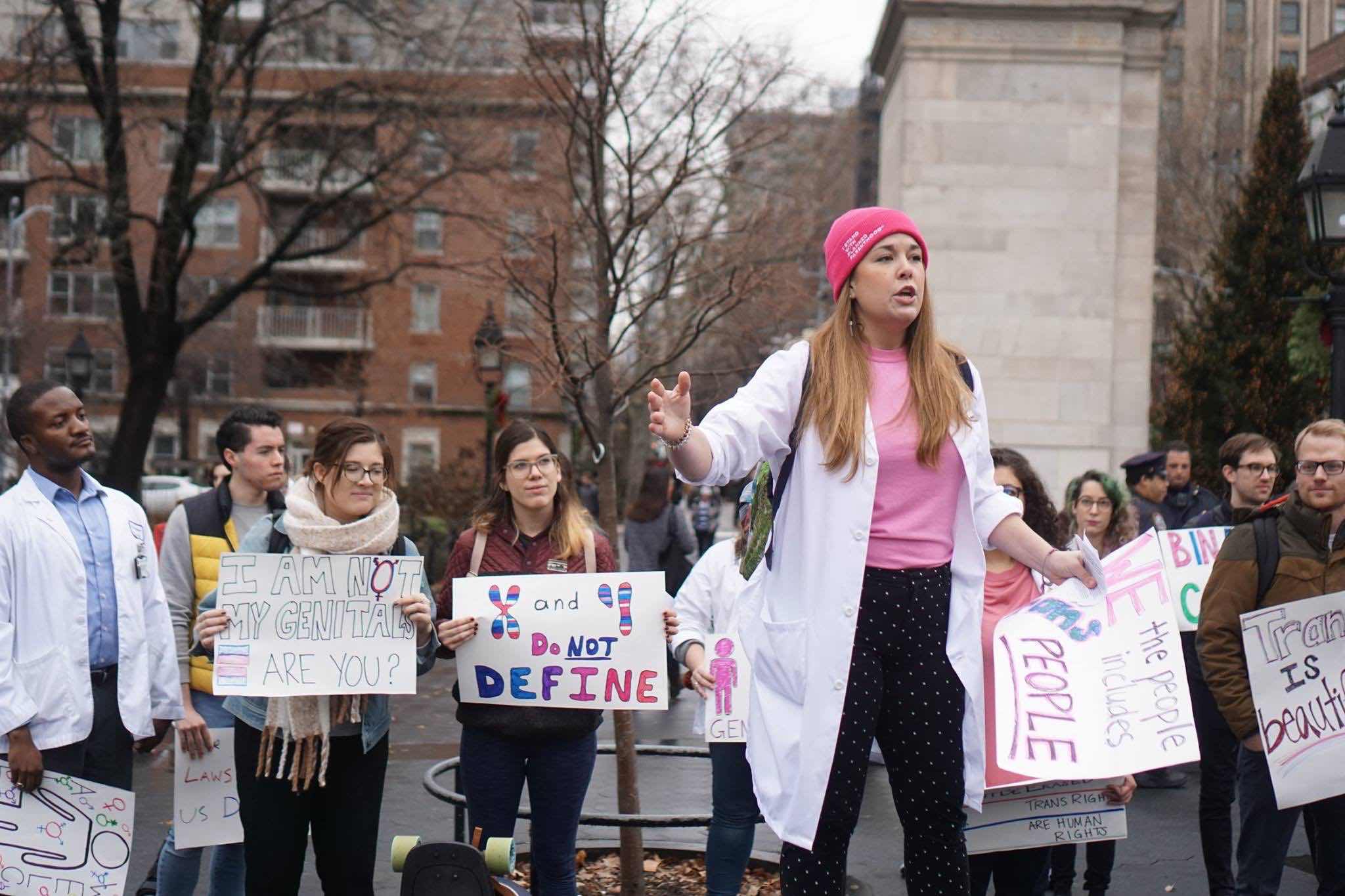
Julia Derk is a Ph.D. student at NYU School of Medicine — Sackler Graduate Program where she specializes in Alzheimer’s disease and neuroinflammation research. Julia moved to New York City to pursue her doctoral degree and take full advantage of the scientific opportunities available at NYU.
Julia grew up in Greeley, Colorado; a rural, nature-filled, small town in Eastern Colorado. According to Julia, Greeley could not be more different than New York City. In Greeley, you’ll almost certainly see “corn, cows and breweries all over”, in addition to “commissioned murals as ubiquitous to every corner as marijuana dispensaries, libraries, parks, schools, and liquor stores”. But, one thing that sets Greeley apart are the gorgeous views of the Rocky Mountains. Although Julia loves the diversity, ambition and passion of New York City, this fall, Julia will be moving back to her home state, Colorado, to begin a Postdoctoral Fellowship at UC-Denver.
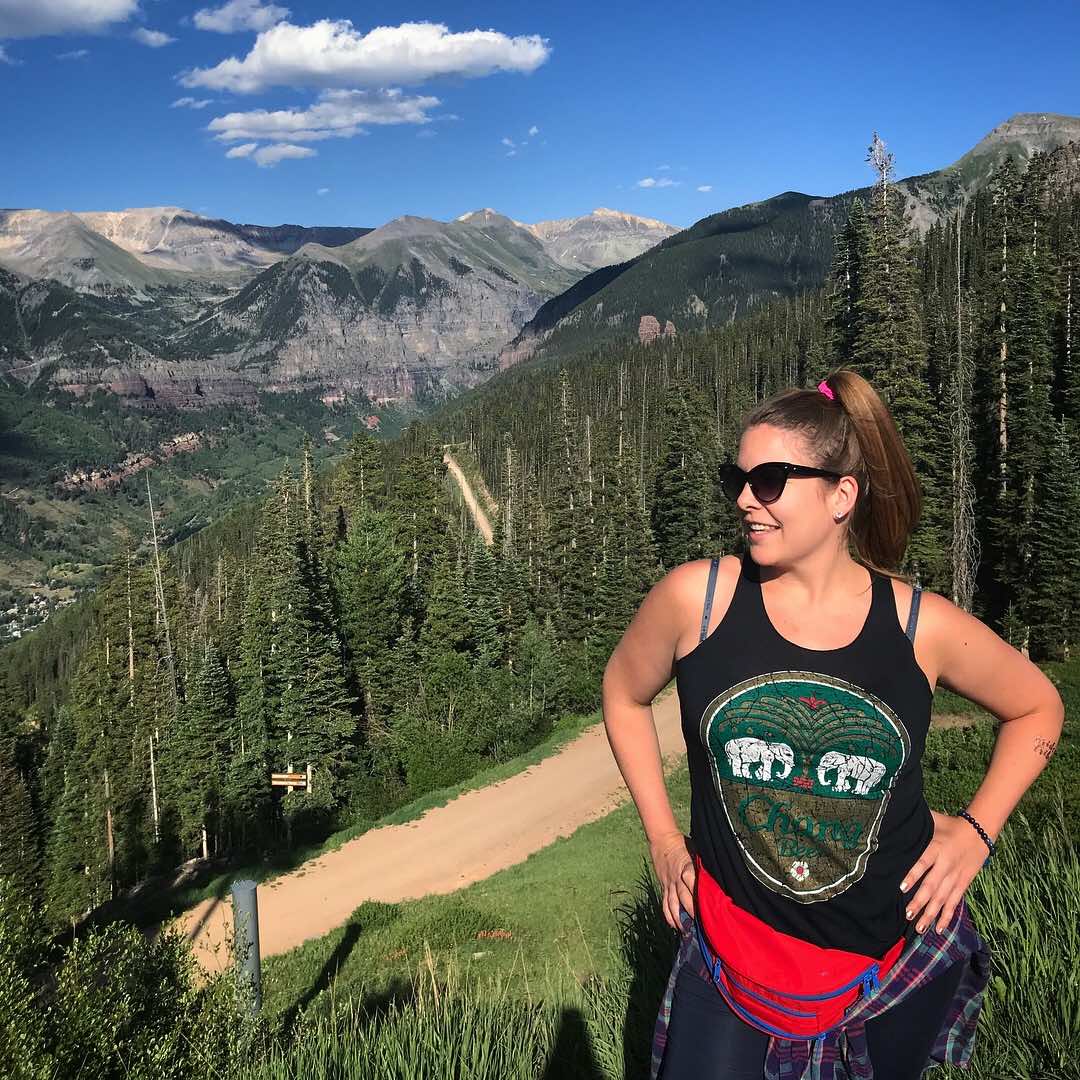
What’s your favorite thing about being a scientist? Did you always want to be a scientist?
“Hands down the best part of being a scientist is that “aha!” moment of discovery. Whether it’s learning a new concept or diving into an experiment and emerging with solid data, the novelty of how much we get to learn is nothing short of magic. It’s really amazing to be at the cutting edge of human knowledge and to work day in and day out towards pushing it further.” I absolutely always wanted to be a scientist. I told my Kindergarten teacher that I dreamed of being a “brain doctor,” but once I learned there was no cure for Alzheimer’s Disease I thought, “alright, well then I’ll have to go find that” and from there refocused my pursuits on research.
Can you think of a specific time when you found science or pursuing science challenging?
“EVERYDAY. (Not joking) I think the most frustrating part is when innocent human error / incompetence come into play. I (and others) have thrown out important samples, double scheduled machines, miscommunicated with one another. They never tell you that the hardest part of grad school isn’t the intellectual stuff. It’s the emotional and organizational qualities of the experience that rip you apart.”
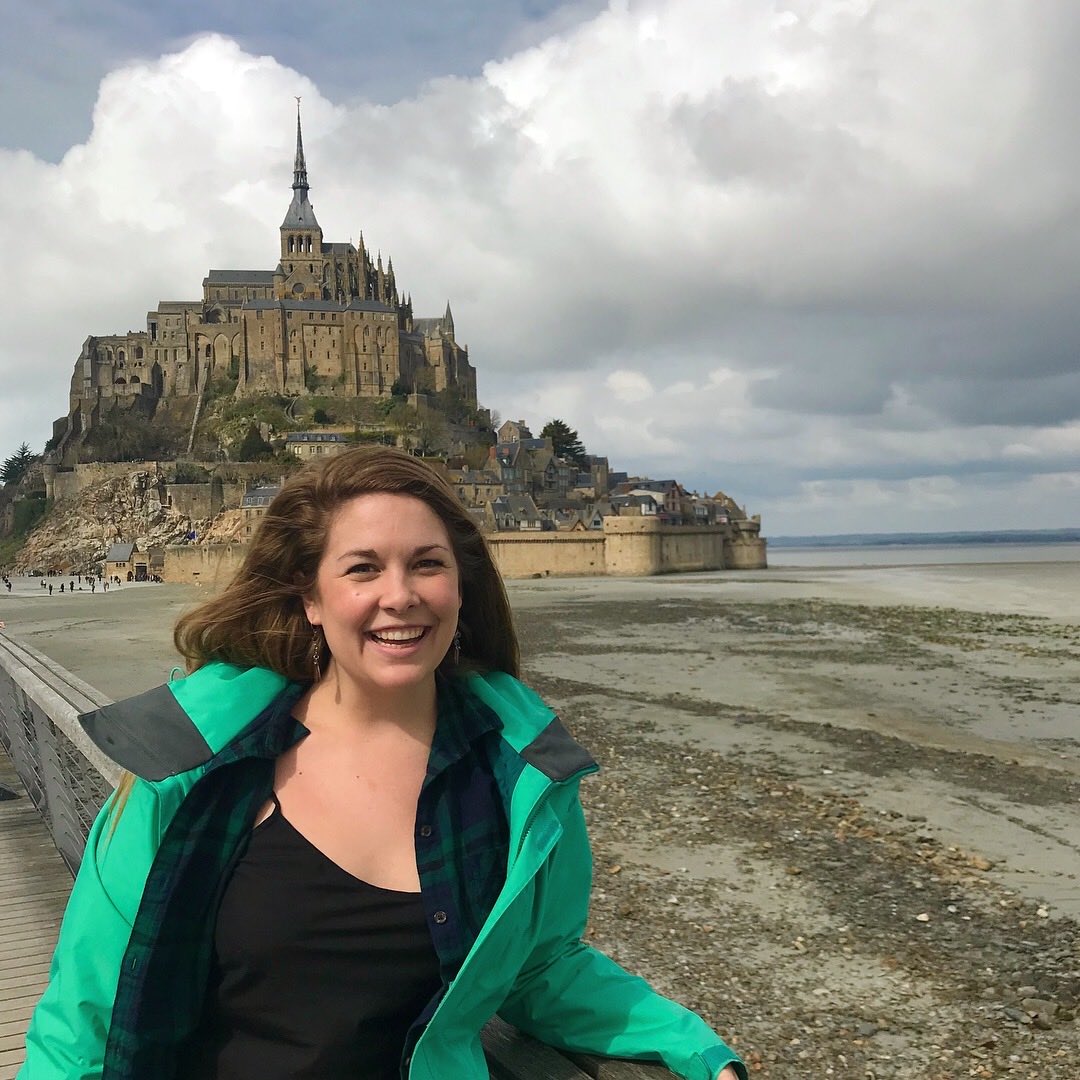
I absolutely always wanted to be a scientist. I told my Kindergarten teacher that I dreamed of being a “brain doctor,” but once I learned there was no cure for Alzheimer’s Disease I thought, “alright, well then I’ll have to go find that” and from there refocused my pursuits on research.
If you could give one piece of advice to young scientists or students, what would it be?
“Connect yourself. Connect yourself as best as you can to the concepts, the people, and the mentors that will help propel you to succeed (and keep you sane on the journey). Science can be extremely isolating. Studying, experiments, and writing all require a lot of alone time wrapping your mind around complex, difficult concepts and searching to find the nuances in them. If you’re not connected to the work, you’ll inevitably lose steam . . . Connections with peers can make all the difference – lab mates, study pals, and peer tutors are invaluable. Don’t underestimate your need for friendship and peer mentorship. Connecting yourself to mentors is quite possibly the most important. While we do our experiments in relative isolation, science requires us to constantly transcend boundaries, and you simply can’t do it alone . . . But if you have the team you need to support you, you’ll stay thriving.”
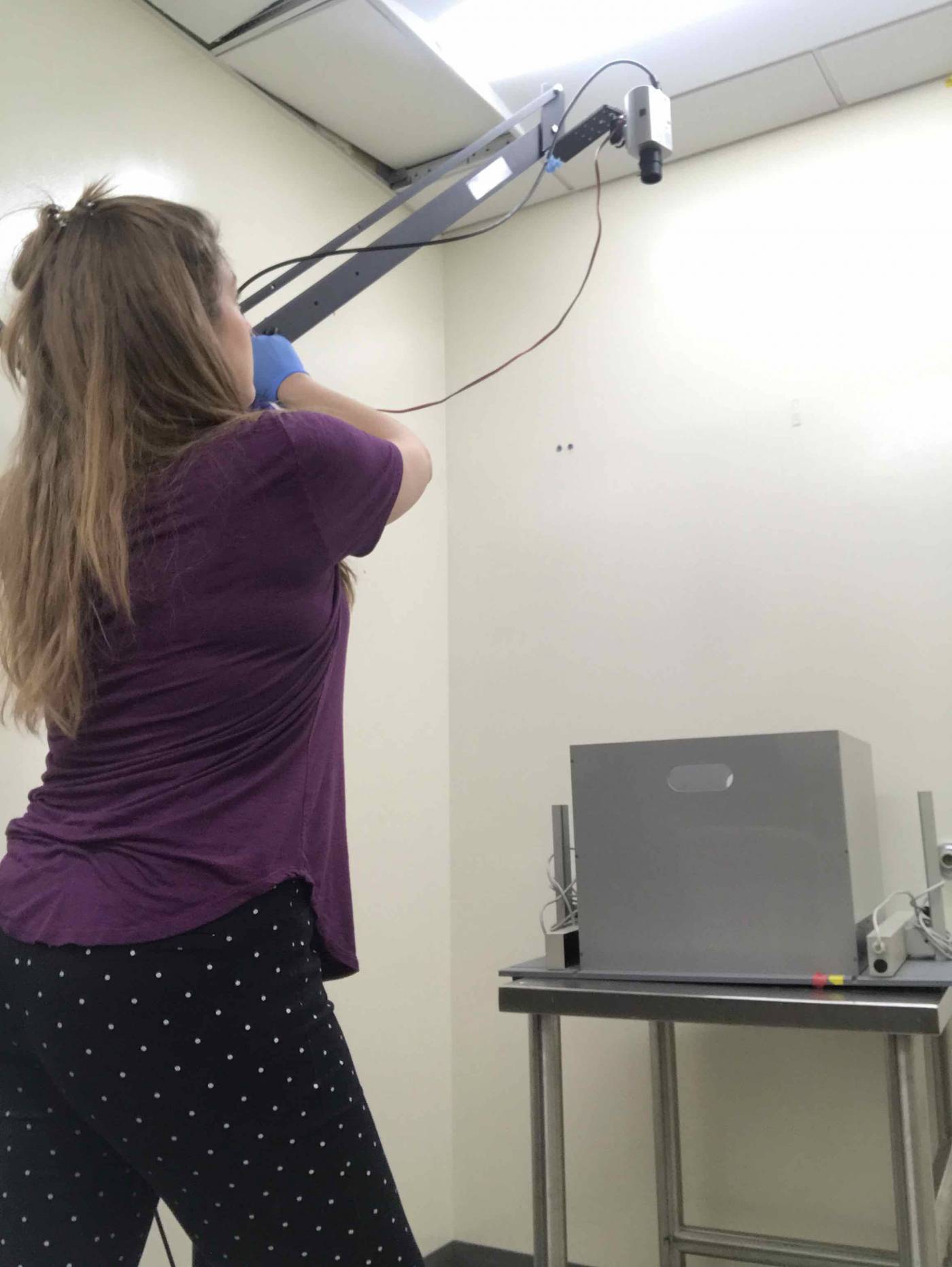
We have a saying in science that we “stand on the shoulders of giants.” To me, it means that we must strive to build upon the great work that came before us, in search of discovering truth. You can’t do this if you don’t respect those that came before you – if you don’t respect those that have gone farther than you are now. That’s exactly what a mentor is and exactly why they’re so valuable.
Tell us about yourself outside of science. How do you spend your time outside of lab?
“Outside of science, whew! I’m a busy lady. At school, I helped to found two different amazing advocacy organizations: Students Advocating for Science, Education, and Medicine (SASEM) and the Coalition for the Responsible and Ethical Advancement of Trainees and Educators (CREATE). Essentially, SASEM is a non-hierarchal group of MD and PhD and MD/PhD students striving towards better understanding how science, social justice, and our identities intersect and how we can better understand mechanisms to use our privilege and expertise for good. We work together on the issues we care most about including how climate change impacts human health, how intersectional feminism aims to empower everyone, sanctuary cities, voter registration drives, and beyond. We fight the stigmas that scientists must be apolitical and that advocacy work detracts from lab. CREATE works directly with HR at NYU Med in order to generate better policies to enhance the training process. Most notably, we’ve advocated for the creation of an Ombudsperson program, hiring a new Title IX and ADA coordinator, increasing transparency in the harassment reporting policy, and administering surveys to poll our students on the climate of our grad program, and beyond.”
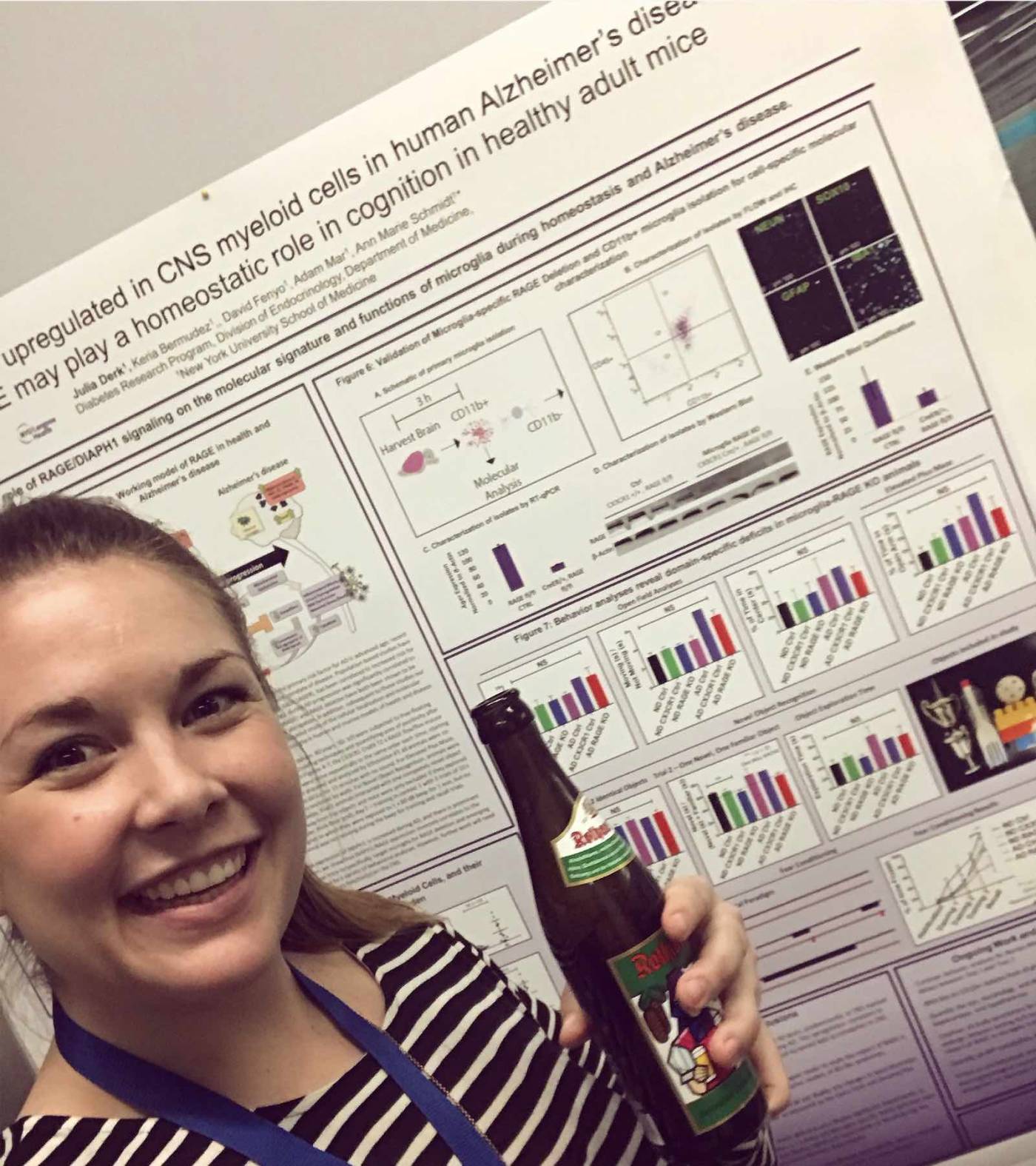
If you hadn’t pursued science, what would you have done instead?
“I’m hard pressed to answer this question, but I think I’d love to have more creativity and outdoor time in my life: maybe I could have be a poet or a National Geographic photographer. I’d love to go to outer space, but I suppose Astronauts are scientists too!”
What is the funniest/strangest thing you have seen in NYC
“This isn’t strange, but I once saw a trans woman give herself her first-ever injection of transitioning hormones on stage as a piece of performance art. I felt so honored to have experienced that moment and so fascinated and empowered by the idea of art intersecting with protest intersecting with medical interventions intersecting with a Bushwick Warehouse party intersecting with my life. Humans are so complex.”
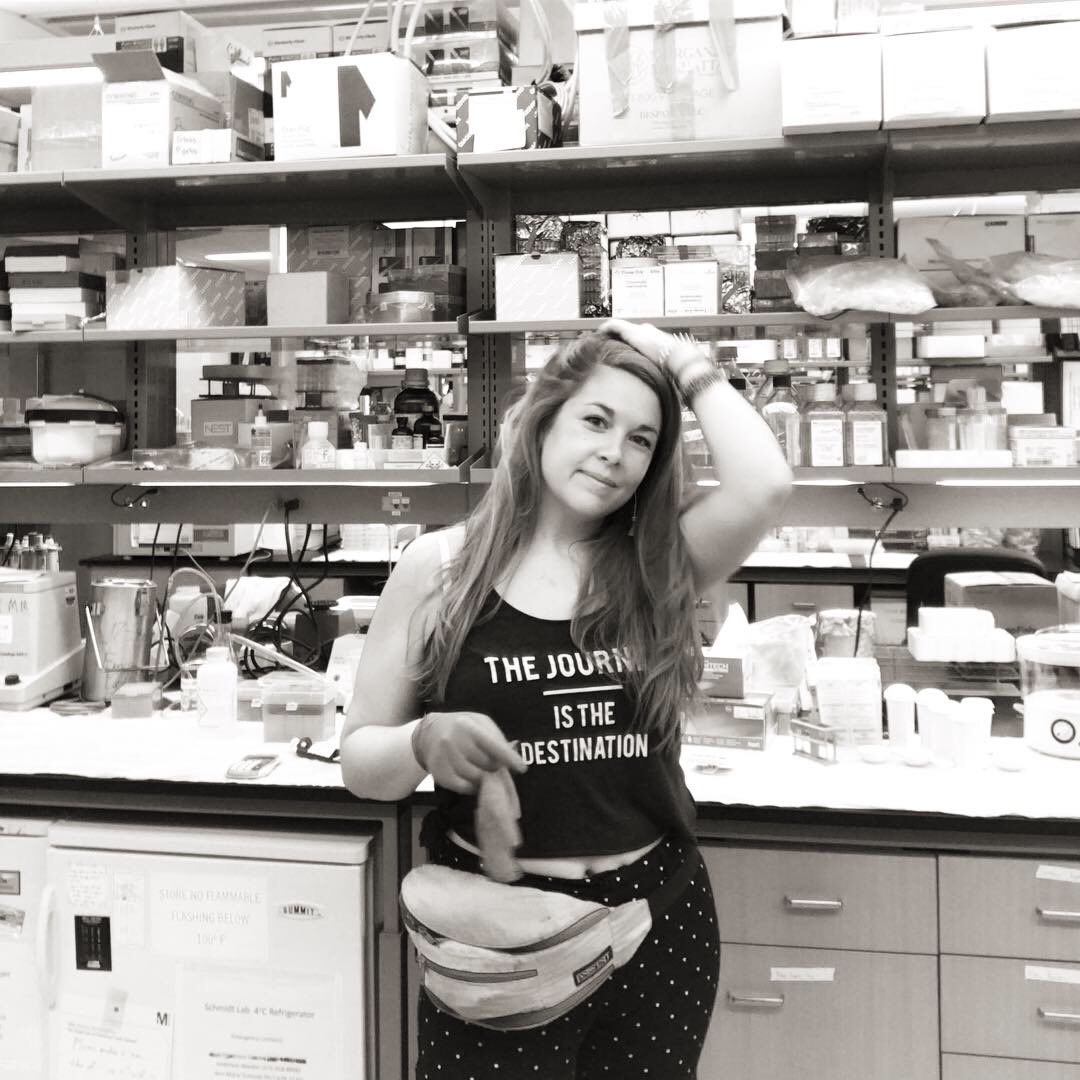
If you were a lab animal/model organism, which would you be and why?
“Honestly, I already think about myself as a model organism all the time! There’s meticulous medical records detailing my history, as a millennial we all put tons of personal information online, and I have a living will requesting to donate my body to science! I hope that after I pass away, the matter in which I went through life can be used for future discoveries and advancing science. Not to mention, if we really want to make meaningful discoveries in the brain and human consciousness, we really need to find better ways to study ourselves. I hope I’m not in the Truman show or some sort of manipulative experiment. I doubt it.”
